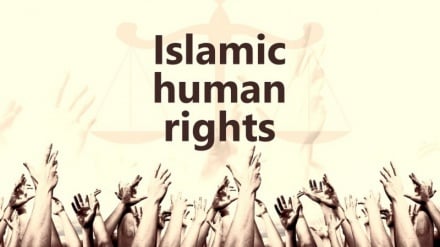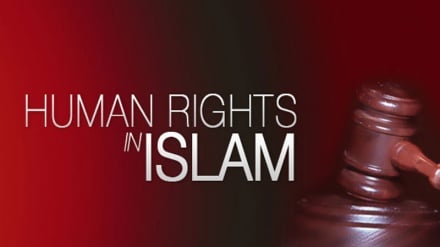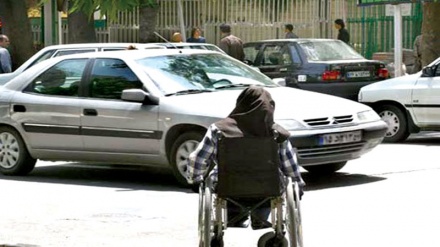Islamic Human Rights (36)
Today, we become familiar with the right of freedom of choice within the framework of Islamic human rights.
Last week, we pointed out that Holy Quran has recognized the political freedom of mankind for human development and perfection and calls for liberation of mankind from the yoke of oppressors. Freedom of choice is one of the very important and fundamental rights; the recognition of which is tantamount to acceptance of one of the most important types of political freedom.
Several ayahs of Holy Quran have taken into consideration the right of freedom of choice in establishment of the political system. These ayahs intend to elaborate that governance is, in principle, a divine matter. Hence, God delegates the right to govern. In fact, these ayahs introduce divine legitimacy as the basis of legitimacy of the ruling system.
For instance, the 39th ayah of Surat Fatir notes: “It is He who made you successors on the earth. So whoever is faithless, his unfaith is to his own detriment. And the unfaith of the faithless does not increase them with their Lord in anything except disfavor.”
Thus, mankind is the viceroy of God on earth.
The second group of ayahs is those who detail the nature of the ruling system. These ayahs have introduced the nature of ruling system as a divine trust.
The 72nd ayah of Surat al-Ahzab notes: Indeed We presented the Trust to the heavens and the earth and the mountains, but they refused to bear it, and were apprehensive of it; but man undertook it. Indeed he is the most unfair and senseless.
In this ayah man in general has been recognized as a divine trustee. In another ayah, God calls on mankind to hand over this divine trust to its rightful owners.
The 58th ayah of Surat al-Nisa notes: Indeed Allah commands you to deliver the trusts to their rightful owners, and, when you judge between people, to judge with fairness.
This ayah calls on mankind to deliver trusts to their rightful owners. Now, the question which springs to mind is that who are the rightful owners of divine trust in the view of Holy Quran? The response to this question can be found in the 59th ayah of Surat al-Nisa which notes: “O you who have faith! Obey Allah and obey the Apostle and those vested with authority among you.”
This ayah considers the Prophet of Islam, Mohammad (Blessings of God upon him and his progeny) and those vested with authority among you as the rightful owners of divine trust, and calls on the faithful to obey them.
Furthermore, the 55th ayah of Surat al-Ma’idah notes: “Your guardian is only Allah, His Apostle, and the faithful who maintain the prayer and give the zakat while bowing down.”
This ayah, similar to the previous ayah, refers to the rightful owners of divine trust, and emphasizes that humans should deliver this trust to its rightful owners.
Contemporary thinker, Martyr Morteza Mottahari, in exegesis of these ayahs noted: Holy Quran considers the ruler of the community as the trustee and guardian of the society, and interprets a just ruling system as a trust which has been delivered to the ruler.
Meanwhile, Holy Quran has recognized allegiance as the most important means for delivery of divine trust.
The 18th ayah of Surat al-Fath notes: “Allah was certainly pleased with the faithful when they swore allegiance to you under the tree. He knew what was in their hearts, so He sent down composure on them, and requited them with a victory near at hand.”
Given that in this historical allegiance, the representatives of people of Yathrib voiced their support for the Prophet of Islam, this allegiance was in fact a means on the basis of which Prophet Mohammad was officially delegated with the leadership of people of Yathrib. Undoubtedly, the content of God proves the legitimacy of this allegiance.
The 10th ayah of Surat al-Fath notes: “Indeed those who swear allegiance to you, swear allegiance only to Allah: the hand of Allah is above their hands. So whosoever breaks his oath, breaks it only to his own detriment, and whoever fulfills the covenant he has made with Allah, He will give him a great reward.”
In this ayah, allegiance with the Prophet of Islam has been considered to be tantamount to allegiance with God; which proves the legitimacy of this allegiance.
Allegiance is a means, on the basis of which those who swear allegiance commit themselves to obey and support the Prophet of Islam, and in return Prophet Mohammad, as the ruler, secures their fundamental rights.
In the view of Holy Quran, people should deliver the divine trust to its rightful owners via allegiance. In this manner, in the view of Holy Quran, people maintain the right of freedom of choice.
Holy Quran, in addition to recognition of people’s freedom of choice in establishment of the ruling system, has recognized people’s freedom of choice in establishment of laws and decisions. This right has been focused upon in Holy Quran within the framework of consultations.
Two ayahs of Holy Quran have clearly focused on consultation, and have encouraged the faithful to hold consultants with each other.
The 38th ayah of Surat al-Shura notes: “Those who answer their Lord, maintain the prayer, and their affairs are by counsel among themselves, and they spend out of what We have provided them with…”
Holy Quran has attached significant importance to consultation, such that this Holy Book introduces holding consultations as one of the characteristic traits of the faithful.
The 159th ayah of Surat Al-I’Imran, which has been descended after the establishment of the ruling system by the Prophet of Islam in Medina, addresses Prophet Mohammad as the Islamic ruler, noting: “It is by Allah’s mercy that you are gentle to them; and had you been harsh and hardhearted, surely they would have scattered from around you. So excuse them, and plead for forgiveness for them, and consult them in the affairs, and once you are resolved, put your trust in Allah. Indeed Allah loves those who trust in Him.”
In this ayah that has been descended after the Battle of Ohod, the Prophet has been called upon to consult with people.
Recognition of consultation by Holy Quran is tantamount to recognition of the right of freedom of choice.
MR/ME


